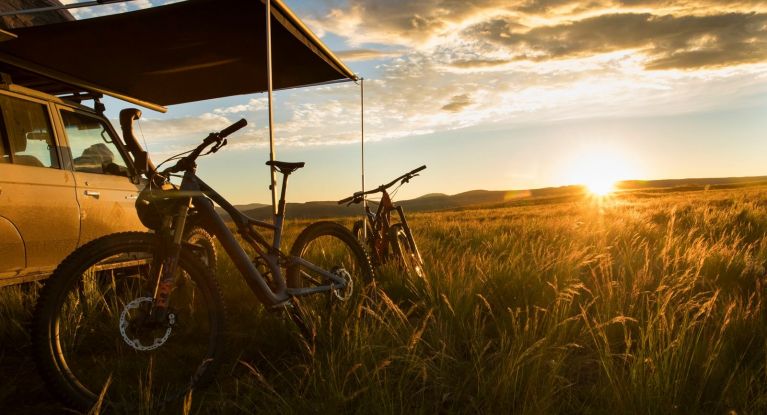
It has been in the diary for months. That huge day out, a brutal challenge for bike and body that you and your mates hatched over a pint one fateful evening. With the day approaching, just 8 weeks away, how do you go about preparing yourself for tackling a true all day epic whilst balancing work, life and a family?

1. Make a plan. Just like the A-Team, you need a plan. Work back from the day of the event and break down the time available to you into blocks of training and recovery. A typical structure would be 3 weeks of training, followed by a recovery week. Over the course of each block, the training gets harder, either doing more miles or doing more intense work. As you approach the big day, your distance and level of difficulty in training should start to closely resemble what will be required on the day.

2. Injuries and niggles. Riding further or longer than you are used to will always expose weaknesses and small injuries. That sore back on your Wednesday night ride could turn into a real problem half way up a mountain when the mist comes in and you can barely move. That is why you should make an appointment with a physio to diagnose any injury or niggles and to get some rehab going. This should be your first priority as underlying issues are going to be the biggest barrier to you enjoying and completing your all day epic adventure.

3. Stealth training. This is where you squeeze little extra bits of training into your schedule, helping you to build your fitness over time without having to make huge sacrifices of changes to your routine. Here are some suggestions......
• If you already cycle commute then 2 days per week you could add on a 10km loop on the way to work in the morning.
• In the evening, do 15 minutes of mobility and some planks for your core whilst you watch some TV in the living room.
• Get to a 30 minute spin class at lunchtime instead of eating at your desk.
• Take the stairs and skip the elevator.

4. Big Rides. Your long weekend rides will be the staple of your preparation for an all day epic. Focus on building your distance up gradually as per the plan you made in Step 1. These rides are also your opportunity to figure out how you will carry your kit. Can you use SWAT to take some of the load off your back? Can you get away with a bum bag or do you need a full on day pack? These rides will also give you an idea of how much you typically eat and drink so you can plan what to carry. Remember that if you are heading off into the wilderness that you should take a bit of extra food and water in case you have an emergency.
5. Hike-a-bike. An epic day in the Lakes or up Snowdon would not be complete without some hike-a-bike, carrying your bike on your shoulders up rocky steps or through minging bogs. It is worth practicing this skill before hand on smaller rides that are less remote. This will have the benefit of strengthening you so you are used to the weight as well as teaching you how to efficiently lift and carry your bike. With modern suspension layouts, each bike is different and will need a slightly different placement to get it comfy.
6. Strength. When fatigue kicks in, it will be your strength that you will fall back on to get you home. Increased strength has been shown to increase endurance qualities in cyclists, so you should make every effort to improve your strength before the big day. It does not need to be complex, and a simple routine of squats, press ups, rows and planks will be enough to make decent progress for beginners who have never strength trained before. For people who may already train, you should aim to deadlift and to do some single leg work like lunges or step ups as well as the movements mentioned above. Remember that form is the most important thing here - never sacrifice it to lift more weight or do more reps.

7. Get stoked and train with a friend. Training and riding with good buddies is probably the best thing about mountain biking, so commit to training with one of your mates. You will keep each other accountable, and a little gentle competition will probably encourage you to train harder too. You are way more likely to go the distance in training and on your big epic ride if you share it with a friend.

Ben Plenge is the head coach at The Strength Factory, where he provides performance coaching for action sports athletes including a number of top DH World Cup and EWS racers, including Charlie Hatton and Mike Jones.
Instagram: @strengthfactory_coach